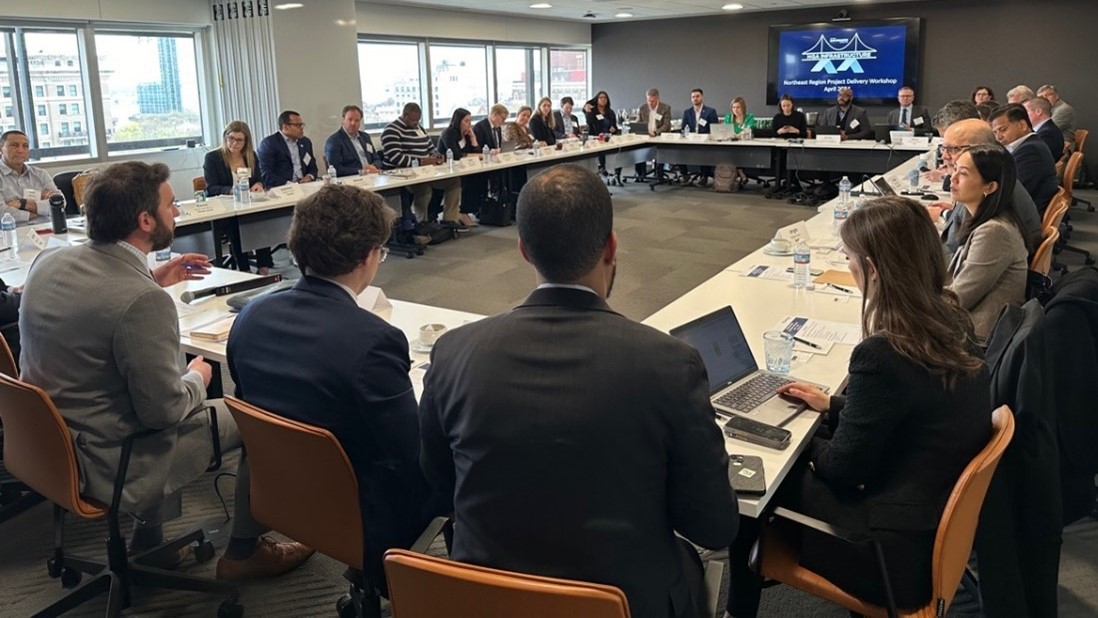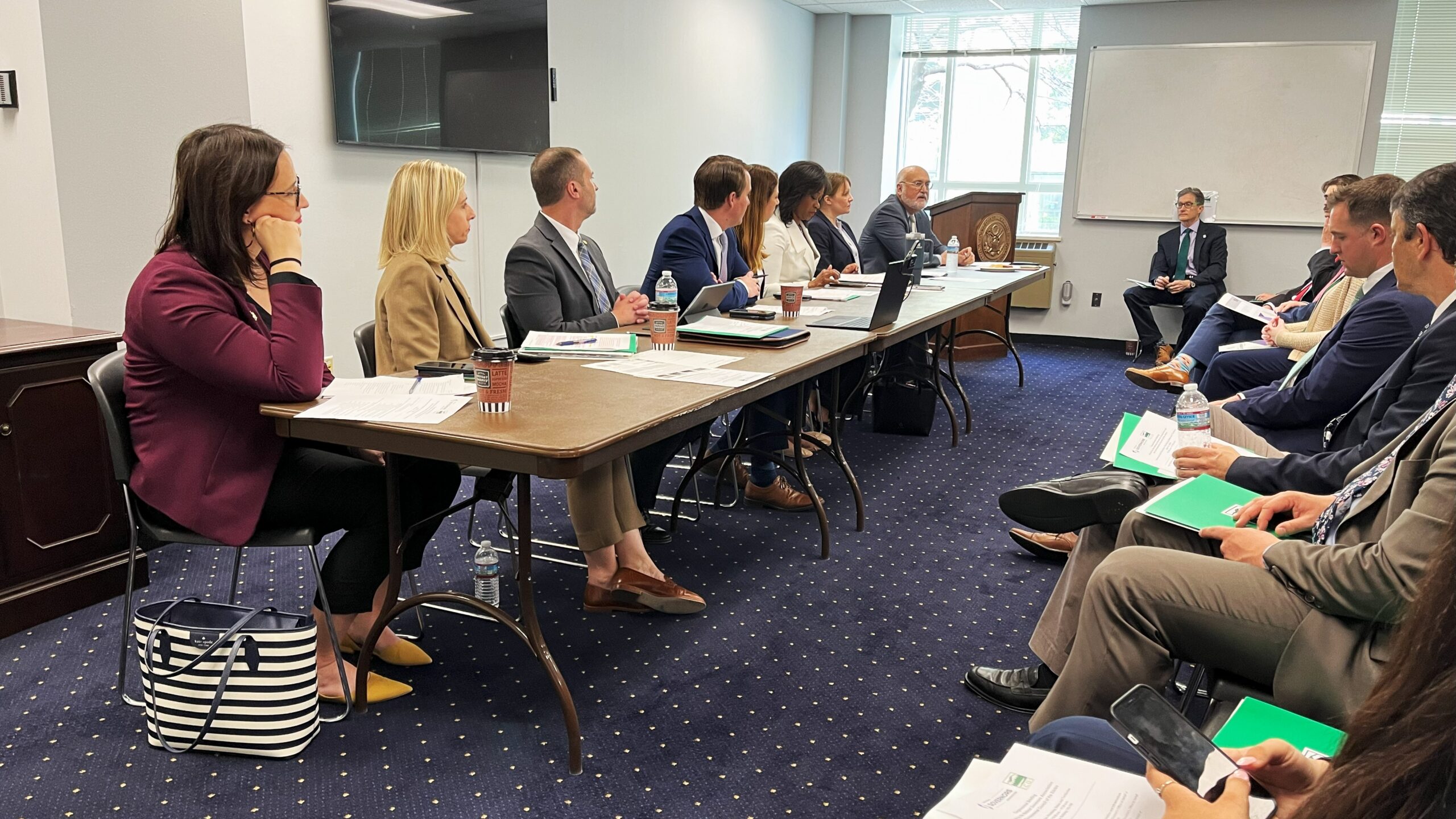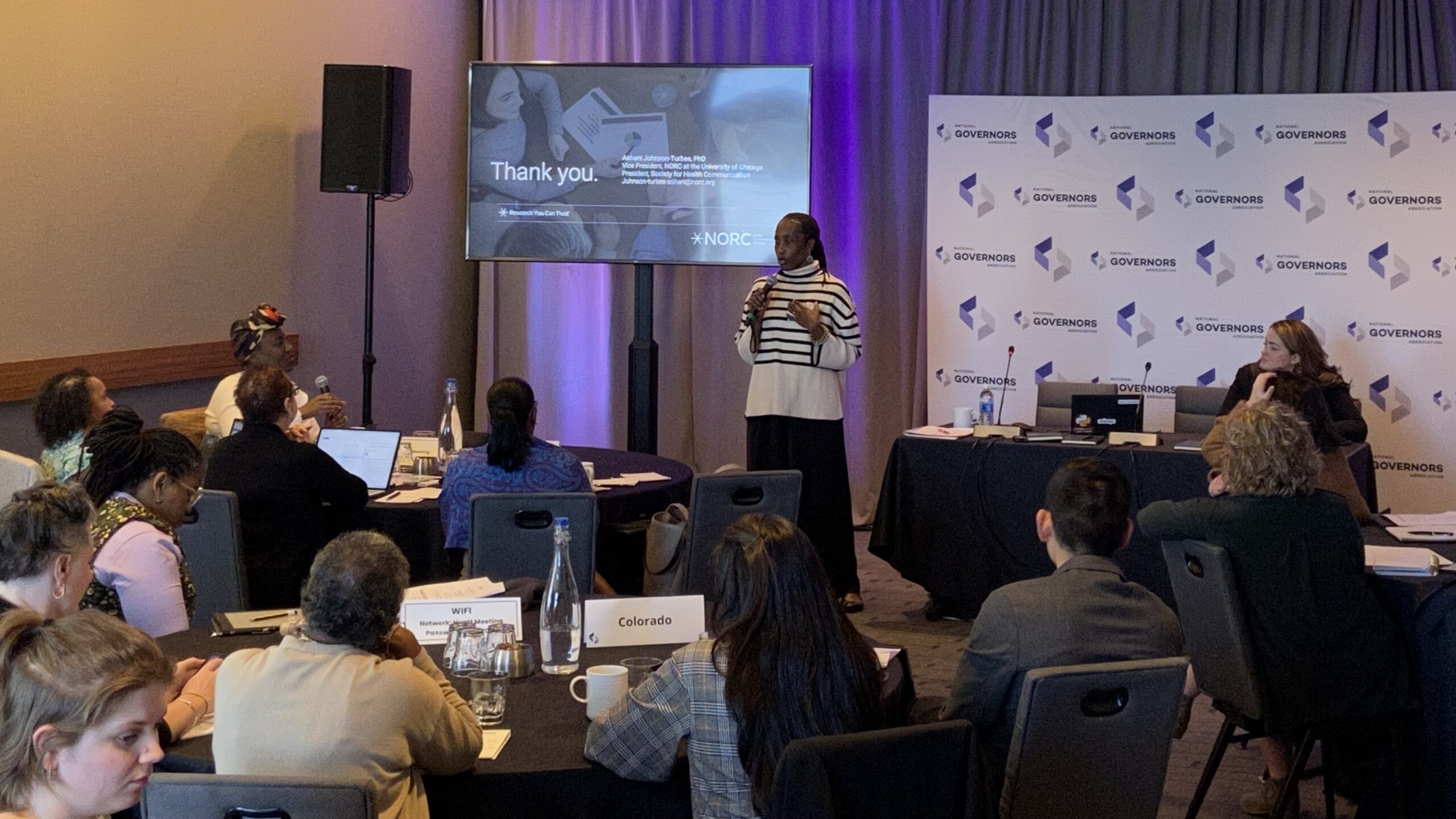Letter to Senators John Thune and Bill Nelson from the National Governors Association, National Conference of State Legislatures, National Association of Counties, National League of Cities, United States Conference of Mayors, and the Government Finance Officers Association regarding preemption of state authority in S. 3157, the STREAMLINE Small Cell Deployment Act.
Full text
July 27, 2018
The Honorable John Thune
Chairman
Senate Committee on Commerce,
Science, and Transportation
512 Dirksen Senate Office Building
Washington, DC 20510
The Honorable Bill Nelson
Ranking Member
Senate Committee on Commerce,
Science, and Transportation
512 Dirksen Senate Office Building
Washington, DC 20510
Dear Chairman Thune and Ranking Member Nelson:
On behalf of the National Governors Association, National Conference of State Legislatures, National Association of Counties, National League of Cities, The United States Conference of Mayors, and the Government Finance Officers Association, we write to share our concerns with the “Streamlining The Rapid Evolution And Modernization of Leading-edge Infrastructure Necessary to Enhance (STREAMLINE) Small Cell Deployment Act” (S. 3157). As currently written, the bill would directly impact traditionally-held state and local regulatory authority and may complicate, rather than simplify, national and other efforts to expedite infrastructure deployment by prolonging state and local processes.
- 3157 will complicate ongoing efforts by state and local governments to deploy small cell infrastructure. While State and local governments share Congress’s goal of ensuring efficient, safe, and appropriate deployment of new broadband technology, this bill as currently written does not represent the best way to achieve that shared goal. In major telecommunications markets throughout the nation, we are seeing how major public and private sector entities are collaborating to adjust rules and take other actions to facilitate the deployment of small cell networks. Currently, nearly half of all U.S. states have passed legislation specifically addressing the deployment of small cell wireless structures, and local governments in those states are now implementing new ordinances and procedures to comply with those changes and are negotiating with industry partners on these deployments.
The STREAMLINE Small Cell Deployment Act as currently written not only threatens and potentially preempts these ongoing efforts of states and local governments to streamline the deployment of small cell infrastructure, but also introduces an unnecessary, one-size-fits-all federal mandate, when little data now exists to determine what is most effective and what is really needed to advance the deployment of small cell networks. Under current rules and practices, significant progress is being made in deploying these networks, with a recent industry report estimating that this year the number of small cell deployments will increase by 550 percent over 2017 levels.
In upending state and local efforts, the bill does nothing to ensure deployment will occur ubiquitously in all of our communities, sharing the fruits of new technology state, city, and county-wide. Rural areas and underserved communities in denser areas may still see profound coverage gaps despite the loss of state and local authority.
Next, the bill imposes unfair and inappropriate timelines on state and local governments. The shot clocks proposed by S. 3157 are considerably shorter than those the federal government applied to itself in the bipartisan MOBILE NOW Act. The reduced size per installation of small cell infrastructure does not directly translate to an accordingly reduced procedural burden on state or local governments. State and local governments must still review each site individually to ensure that it meets the jurisdiction’s requirements. Further, the limited extension for small jurisdictions and bulk requests of over fifty applications included in the bill does not address the resource challenges before states and localities. In some areas today, companies are already working with local governments to develop new methods to facilitate the timely review and local action on these applications, innovations that will be compromised or set aside by the bill’s one-size-fits-all directives.
Finally, limiting what state and local governments can charge for access to rights-of-way and other state and local government property to direct and actual costs is an overreach by the federal government. The federal government should not grant private businesses favored access to property that it does not own, nor should it regulate the rates that state or local governments charge for use of their property. State laws governing what state and local governments may charge for use of their property should be respected under our system of federalism.
For these reasons, we are opposed to S. 3157 as currently written. We look forward to working with you and others on the Committee and in the Senate to develop better solutions to expand broadband access through new small cell networks in our urban and rural areas and better serve all Americans.
Sincerely,
Scott D. Pattison
Executive Director & Chief Executive Officer
National Governors Association
William T. Pound
Executive Director
National Conference of State Legislatures
Matthew D. Chase
Executive Director
National Association of Counties
Clarence E. Anthony
CEO/Executive Director
National League of Cities
Tom Cochran
CEO and Executive Director
The United States Conference of Mayors
Christopher P. Morrill
Executive Director/CEO
Government Finance Officers Association
cc: The Honorable Brian Schatz
Other Members, Senate Committee on Commerce, Science, and Transportation












